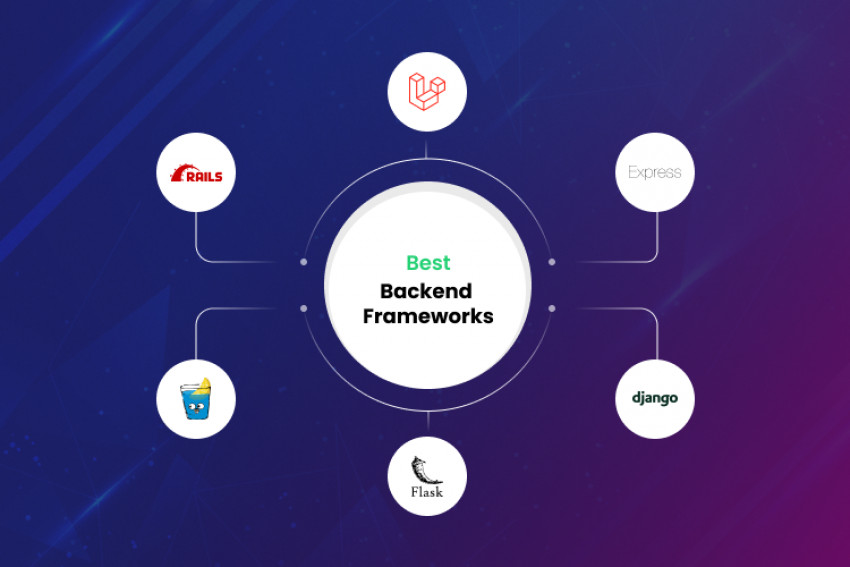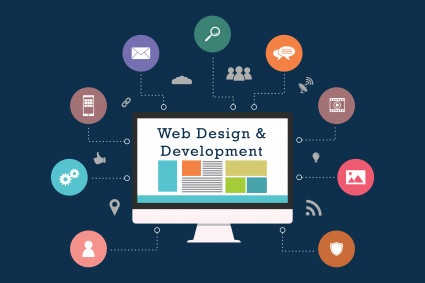
In today's digital space, web applications hold a special place in ensuring that a brand is completely digitalized. What started with mobile apps coming in from Play Store and App Store, has today been extended to web applications as well.
To back this digital trend, several web development frameworks have come into existence both on the front and backend sides. However, choosing the best of the lot can get difficult.
In this article, we are going to look into some of the top backend frameworks for web app development in detail. We hope that by the end of the article, you will be able to choose what is best for your digital project.
So, without further ado, let's start.
What is a backend framework?
Commonly called server-side frameworks, it is a mix of tools and modules which help create a web platform's architecture. It doesn't just carry an impact on the performance but is also necessary for the project’s success.
Being operative in languages like JavaScript, Ruby, Node.js, Java, C#, etc. These frameworks are used for making the development process efficient and easy.
When do you need a backend framework?
Backend frameworks, as we mentioned above, are needed to make backend development easy and efficient. It achieves this by adding automation to the mix. But, how do you decide that you need a backend framework? Let's talk about it.
- When you have to build and run web apps.
- You need to build web apps that consist of web APIs, web services, and online resources.
- You don't want to code independently and look for errors and faults.
- If the maximum of the app's actions are CRUD.
- If you have to isolate the UI from business logic but have less time.
- If you need user authentication in your app.
- If you need to build a CMS speedily.
As you must have reckoned, backend frameworks are needed in almost every digital situation.
Now, let's get to the stage where we look into the best backend frameworks to choose from.
The best backend frameworks for web app development
There are several backend frameworks that a web app development company chooses from. But, the ones we are going to list here remain the topmost choices.
- Ruby on Rails
Also called Rails, it is an open-source web app framework that is written in the Ruby language. It enables developers to make use of patterns such as DRY (Don’t Repeat Yourself) and MVC (Model View Controller).
What is best about Ruby on Rails is that it helps developers build, analyze, and augment software. Moreover, it mixes the capabilities of Ruby, HTML, CSS, and JavaScript for creating dynamic applications.
Here are the many benefits of using Ruby on Rails.
- Reliable & Accurate: The framework consists of test-driven techniques that help developers attain lesser errors and higher consistency.
- Rapid Development: It operates quickly and saves time by making tasks easier. This also results in achieving rapid deployment.
- Massive Developer Community: There are several skilled and experienced developers in the Ruby on Rails community. They help troubleshoot development problems while consulting other developers around problem areas.
- Easy Scalability: RoR’s scalability enables developers to manage complex duties. Even when developers work on small projects, the framework expands significantly.
- Laravel
Laravel is an open-source PHP framework that enables developers to build Symfony-based web apps by using the MVC architecture. It enables them to use a relational database that helps with app maintenance and deployment. The many benefits that it comes with make it the best web app development framework for backends.
- Simple API: The framework provides a simple API that gets integrated seamlessly with SwiftMailer. It extends support to Mailgun, Amazon SES, and SparkPost, in addition to Mandrill drivers and SMTP.
- Authentication: At the back of an easy configuration, Laravel makes authentication simpler. The framework provides easy authorization logic management and direct control over the access resources.
- Testing: The framework supports the PHPUnit and consists of a phpunit.xml file for aiding app testing. It also offers simple user behavior simulations that enable form filling, app requests, and link clicks.
- Logs: The laravel framework comes with a preconfigured exception and error management facility. It integrates the Monolog logging library and offers assistance to a plethora of log managers.
- Gin Gonic
Gin Gonic is a popular Golang backend framework used for creating high-performance APIs through the incorporation of key functionalities and libraries. It’s a simple framework that is deemed best for creating high-performance REST APIs.
Gin is often compared with Martini for its API. However, the framework is more or less 40 times faster than the latter.
The benefits that it comes with include -
- Fast: It offers a Radix tree-based routing system having a small memory footprint. This promises a faster API quality.
- Error handling: It enables developers to gather all the issues that came up during the HTTP request and then write them to a database.
- No Crash: The framework detects and fixes all the HTTP request-related issues. This leads to an event where the servers are always active.
- Extension: Gin eases the process of building new middleware.
- Django
Django is considered one of the best Python-based, open-source create frameworks. It’s a solution that helps build database-specific, complex web platforms.
Startups that prioritize building high-quality web platforms generally go for Django web app development. They can easily use the framework with HTML, JSON, and XML formats.
The benefits that the backend framework comes with include -
- SEO benefits: Django-centric apps are very easy to optimize and are very SEO-friendly as the developers can maintain the apps through URLs instead of the IP addresses.
- Expedited development: It enables developers to use multiple elements together. They don’t have to write different codes for new functionalities. Additionally, it helps with creating MVPs.
- Massive community: It comes with a wide community of more than 2000 developers. This enables getting fast solutions to issues.
- Versatile use cases: The framework comes with the scope to build a range of different websites - Social media, News, and CMS.
- Express
Express is a NodeJS web app development framework that is highly versatile and very lightweight. It comes packed with a range of features for mobile and online apps. The fact that it is based on the MEAN stack, makes it easier for developers to create APIs and web apps.
According to a recent Stackoverflow Developer Survey, it was found that Express is one of the most popularly used web frameworks of 2021.
The benefits of the framework include -
- Fast scalability: The framework helps with scaling the web apps faster. With the help of NodeJS and a few resources, the developers can rapidly scale their apps.
- Fewer maintenance costs: It is a full-stack framework, because of which, businesses don't have to hire several developers for managing the backend of the app.
- Google v8 Engine Support: The support ensures great performance minus any issue in the processing.
- One language support for backend and frontend: It enables using JavaScript for building both the backend and frontend of a web app. The fact that it uses a single language makes the framework very easy for the developers to use.
- Flask
Flask is a Python-based web app framework that helps in creating modern and robust web apps. It is a WSGI framework that operates on a web server instead of the user’s browser.
The benefits that the framework provides include -
- Flexible: The framework offers a range of dynamic URL parameters, templates, URL arguments, and HTML elements that help improve web app responsiveness.
- Scalable: It is popularly used for building scalable apps. It can manage multiple requests minus any regard for the corresponding requirements.
- Easy to learn: It is an unopinionated, well-documented framework, which is very easy to learn.
- Fast implementation: Flask enables exploration through trending technologies. It’s a great framework for developers who want to try innovative features sets in their web projects.
So here were the top 6 popular backend frameworks for web application development. We hope that the benefits would have given you an idea of where their strengths lie and how they can be aligned with your software requirements.


